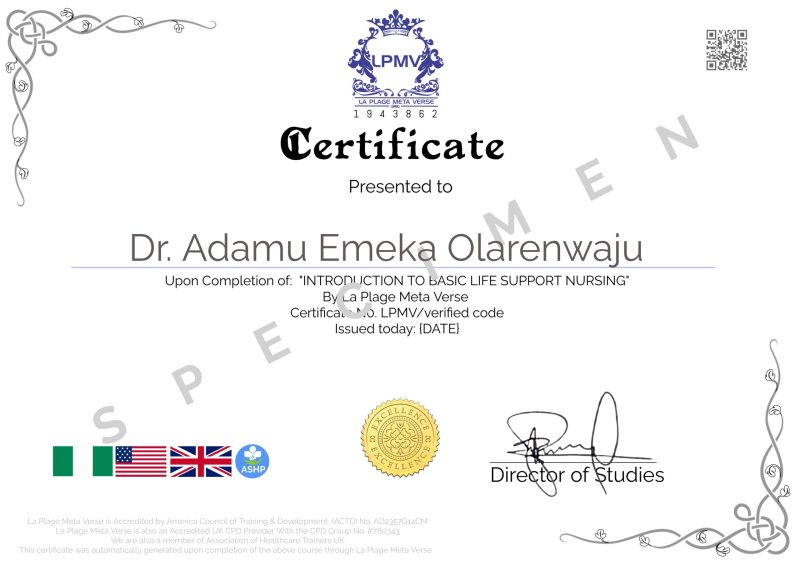Course Overview
This course provides a comprehensive understanding of climate change, encompassing its scientific basis, socio-economic impacts, and potential solutions. Students will explore the underlying causes of climate change, its effects on ecosystems and human societies, and strategies for mitigation and adaptation.
This course provides students with a holistic understanding of climate change, empowering them to critically assess its implications and contribute to efforts aimed at addressing this global challenge.
What you will Learn
- The scientific principles underlying climate change, including the greenhouse effect and the role of greenhouse gases.
- Evidence of climate change from historical records, scientific observations, and climate models.
- Causes of climate change, distinguishing between natural factors and human activities, such as the burning of fossil fuels and deforestation.
- The components of the Earth’s climate system, including the atmosphere, hydrosphere, biosphere, and cryosphere.
- Impacts of climate change on ecosystems, biodiversity, weather patterns, and sea levels.
- Socio-economic impacts of climate change on human societies, including food security, water availability, health, and livelihoods.
- Mitigation strategies to reduce greenhouse gas emissions, such as transitioning to renewable energy sources, improving energy efficiency, and implementing carbon capture and storage technologies.
- Adaptation measures to cope with the effects of climate change, including infrastructure resilience, agricultural practices, and community-based initiatives.
- International agreements and policy frameworks aimed at addressing climate change, such as the Paris Agreement and national climate action plans.
- Technological innovations and geoengineering possibilities for mitigating climate change and their ethical considerations.
- The importance of ethics, equity, and climate justice in addressing climate change, particularly in relation to vulnerable populations and inter-generational equity.
- The role of individual and collective action in combating climate change, including lifestyle choices, advocacy, community engagement, and international cooperation.
Who Should Learn
- Scientists and researchers interested in understanding the scientific principles, impacts, and solutions related to climate change.
- Policymakers and government officials responsible for developing and implementing climate policies and regulations.
- Environmentalists and activists advocating for climate action and sustainability.
- Educators and students seeking to deepen their knowledge of climate science and environmental issues.
- Business leaders and professionals looking to integrate climate considerations into their operations and decision-making processes.
- Community leaders and organizers interested in implementing local climate resilience and adaptation initiatives.
- Engineers and technologists working on developing clean energy technologies and climate mitigation solutions.
- Agriculturalists and farmers seeking to adapt their practices to changing climate conditions.
- Health professionals interested in understanding the health impacts of climate change and developing adaptation strategies.
- Citizens and consumers interested in making informed choices and taking action to mitigate climate change in their daily lives.
Career Opportunities
- Climate Scientist: Conduct research on climate patterns, analyze data, and contribute to understanding climate change dynamics and impacts.
- Environmental Policy Analyst: Analyze environmental policies and regulations related to climate change, and provide recommendations for policy development and implementation.
- Renewable Energy Engineer: Design, develop, and implement renewable energy systems such as solar, wind, hydro, and geothermal, contributing to the transition to low-carbon energy sources.
- Sustainability Consultant: Advise businesses, organizations, and governments on sustainable practices, including energy efficiency, waste reduction, and carbon footprint reduction strategies.
- Climate Change Adaptation Specialist: Develop and implement strategies to help communities, businesses, and governments adapt to the impacts of climate change, such as sea-level rise, extreme weather events, and changing precipitation patterns.
- Environmental Lawyer: Specialize in environmental law, including regulations related to climate change mitigation, adaptation, and environmental justice.
- Carbon Market Analyst: Analyze carbon markets, emissions trading schemes, and carbon pricing mechanisms, and provide insights to businesses and investors on carbon-related risks and opportunities.
- Environmental Educator: Educate the public, students, and communities about climate change science, impacts, and solutions, and promote environmental literacy and awareness.
- Climate Risk Analyst: Assess the financial and socio-economic risks associated with climate change impacts, such as property damage, supply chain disruptions, and health-related costs.
- Climate Change Communications Specialist: Develop communication strategies and campaigns to raise awareness about climate change issues, engage stakeholders, and promote behavior change towards sustainability.
Prerequisites
This course does not require participants to have a specific entry requirement. Those who are interested can sign up.
Course Duration & Online Support
Duration depends on the learner’s ability to cope with the pace and scope of the course. Self-study allows participants to complete the course at their own pace. Support extensions are also available if students fail to do so within that period.
Assessment
To successfully complete the course, students are required to complete various tests and assessments. You may be required to get a link from our Training Provider. Your test will be reviewed and graded by our system. You may attempt only twice.
Get a Completion Certificate.
La Plage Meta Verse is an Internationally Accredited Institution.
REGISTRATION NUMBER: 1943862
ACCREDITATION
LPMV is ISO 9001 Quality Management System Certified Business
LPMV is a member of Association of Healthcare Trainers (AOHT) UK
LPMV is also an Accredited CPD Provider With the CPD Group No. #780343
LPMV is Accredited by America Council of Training & Development (ACTD) No. AD2357G14CM
Upon successful completion of the course, students will be able to gain an international Accredited Certificate. Share your certificate with prospective employers and your professional network on all social media platforms.

